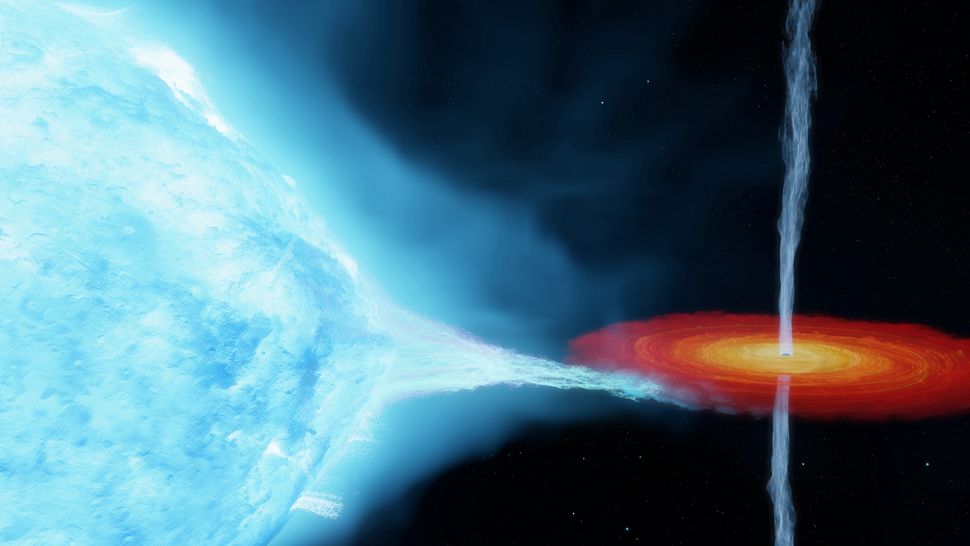Science
Related: About this forumSome black holes have a 'heartbeat' -- and astronomers may finally know why
By Paul Sutter
published 1 hour ago
A tiny fraction of known black holes emit X-ray signals that resemble a human "heartbeat." Now, new research may finally explain the strange phenomenon.

on the left is a large blue star with a long stream of material stretching out from the star into the disk around the black hole on the right.
An artist's depiction of the Cygnus X-1 black hole and its companion star. (Image credit: International Centre for Radio Astronomy Research)
Black holes aren't alive, but it turns out that they can have a heartbeat — if they're consuming enormous amounts of gas. And new research has discovered just how that heartbeat works.
When black holes exist in a binary system — sharing an orbit with another star — they can pull in gas from a stellar companion. When this happens, the gas compresses and heats up to incredibly high temperatures, emitting copious amounts of X-ray radiation in the process. It's through this process that astronomers first identified black holes with the famous case of Cygnus X-1, one of the brightest sources of X-rays in our sky.
In the midst of this feeding frenzy, which can last for thousands to even millions of years, there can occasionally be a tremendous outburst. This is a sudden flare of X-rays caused by the quick consumption of an enormous amount of material at once.
Astronomers have studied many such flares over the years, but detailed observations of these flares have occasionally revealed strange behavior. In addition to the overall flare, there is a little bit of variability, a regular pulse of activity embedded within the flare event. Astronomers call these pulses heartbeat flares, because their behavior resembles that of an EKG signal of a human heartbeat with a slow rise, a rapid decline, and then a return to normalcy.
More:
https://www.space.com/why-some-black-holes-have-heartbeats
JoseBalow
(4,408 posts)I don't understand how x-rays, or anything else, can be emitted. Is it coming from the surrounding disk, before it crosses the event horizon? Or from within the black hole itself? ![]()